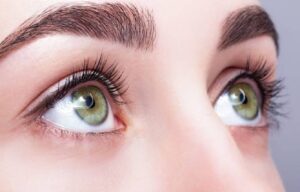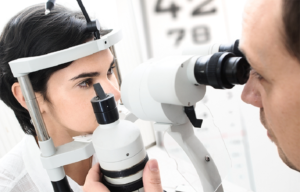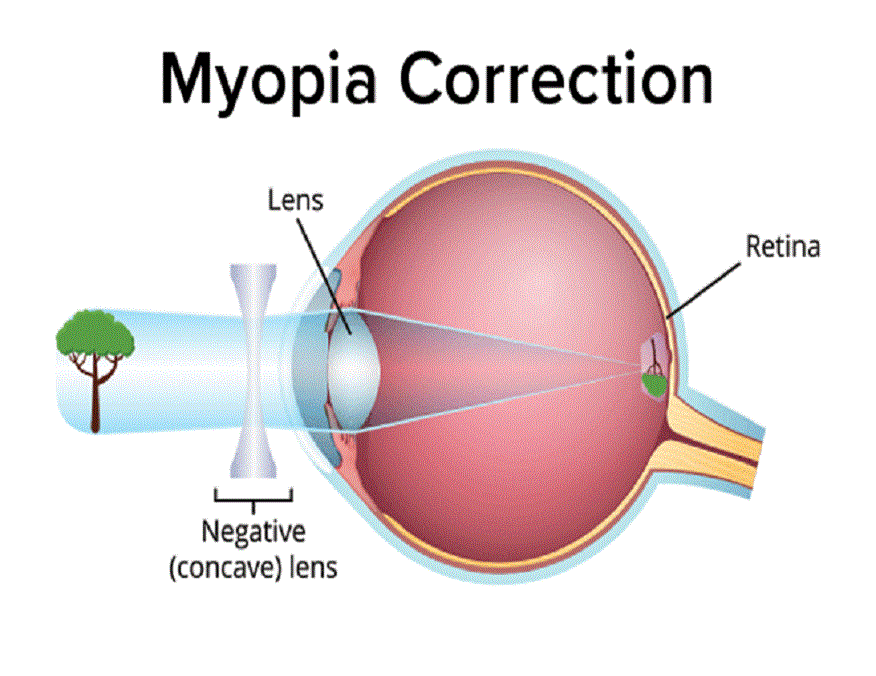The eyes are oh so important organs, but so fragile. Sensitive to foreign bodies, to light, to screens… they can quickly become irreversibly damaged. 3 out of 4 people aged 20 suffer from eye problems , and this rate rises to 97% for those over 60. While certain eye malformations consistently cause vision problems, there are a number of good practices to follow to maintain healthy eyes. Discover in this article several good reflexes to take to protect your eyes in all circumstances and at all ages.
Properly protect your eyes from screens
Screens are everywhere in our daily lives, laptops, televisions, computers… they attract our gaze almost uncontrollably. However, if they are distracting to many people, they can be bad for your eye health . Indeed, each screen produces what is called blue light.
This blue light is part of the light spectrum, it is emitted in particular by the sun but also by any artificial light such as light bulbs or screens. This luminosity is endowed with a relatively strong energy which can cause damage to the eye if looked at for too long or too fixedly. This damage to the retina can impair vision over time. Similarly, looking too much at screens often triggers a “digital deficiency” syndrome which causes dry eyes , headaches…
To avoid these inconveniences and protect your sight from screens , you should adopt the right behavior to protect your sight. Several solutions are available to you :
– Use blue light blocking glasses. There are now glasses with a blue light filter that will protect your eyes.
– Adjust the brightness of your screens so that they are not aggressive. It is also important to stay a safe distance from the screen to preserve your sight.
– Some recent devices also integrate anti-blue light filters in the form of an application. Find out how to install them.
– Take regular breaks to rest your eye. Looking away and letting it wander away from the screens helps to rest your eye. There is a rule called the “ three 20s rule ” that sums up this good practice: every 20 minutes, take a 20-second break while looking at an object 20 meters away.
Protect your eyes from the sun
It is common knowledge that the sun is bad for the skin and that we must protect ourselves against it. It is also known not to look directly at the sun. However, beyond these precautions, it is advisable to protect yourself from UV rays which are harmful to sight. Damage caused by ultraviolet rays can cause eye diseases such as cataracts, age-related macular degeneration (AMD) and damage to the retina.
To protect your eyesight from sunlight, it is recommended to wear suitable glasses with good UV protection. Be careful though, it is advisable to buy your sun protection from professionals in order to be sure of the quality of the lenses. Similarly, certain levels of sun protection are contraindicated for driving, for example
Remember that this precaution is only valid in summer. At this season, the presence of sunlight is more evident but do not forget the possible reverberation of ultraviolet rays on the snow in winter, just like on the water elsewhere. This one is often forgotten but remains very dangerous. In bright weather, even if the sky seems overcast, protect your eyes when going to the mountains.
Have adequate light in good quantity
If artificial lights produce blue light that is sometimes harmful to our sight, they are still preferable to darkness. Having adequate lighting is essential to preserve your eyesight. Reading in a space that is too dark will strain your eyes and tire them faster. If punctually, the consequences are not visible, repeatedly they can be disabling.
Similarly, too strong lighting that dazzles is not recommended because it could attack your retina and deteriorate your sight. Inadequate lighting can cause headaches, eye fatigue and eventually loss of vision.
For the visually impaired, there are specific lights for low vision called “daylight effect” which provide sufficient light without dazzling. People suffering from AMD will thus be able to limit their visual fatigue and have better reading comfort.
Wear a corrective device adapted to your vision
In order not to force the eyes excessively and not to suffer a premature loss of vision, it is important to benefit from a corrective device adapted to your sight . For this, it is necessary to have your eyesight checked regularly – every year – by a specialist in order to detect any myopia or presbyopia as soon as possible . If this advice is particularly true after the age of 50, it applies from an early age.
Eye care professionals will also be able to advise you on the type of correction depending on the situation: glasses to rest your eyes in front of a screen, daily glasses, contact lenses, etc. Some contraindications exist: for example, avoiding exposure dust when wearing contact lenses. It is therefore not suitable for all professions.
In addition, you will have to follow certain instructions and be careful with your eye care device: dirty glasses or lenses worn for too long can have a negative impact on your eyes. Similarly, it is not recommended to sleep with your lenses at the risk of causing damage to your eye which could have long-term consequences.
Blink
Blink , it seems simple and obvious. But despite everything it is a forgotten automatism when one is concentrated. Blinking is essential because it moistens the eye by distributing lacrimal fluid – in other words, tears – on the cornea. Without blinking, the moist veil that covers the eye will tear, causing dryness and blurred vision, and even fatigue and headaches.



